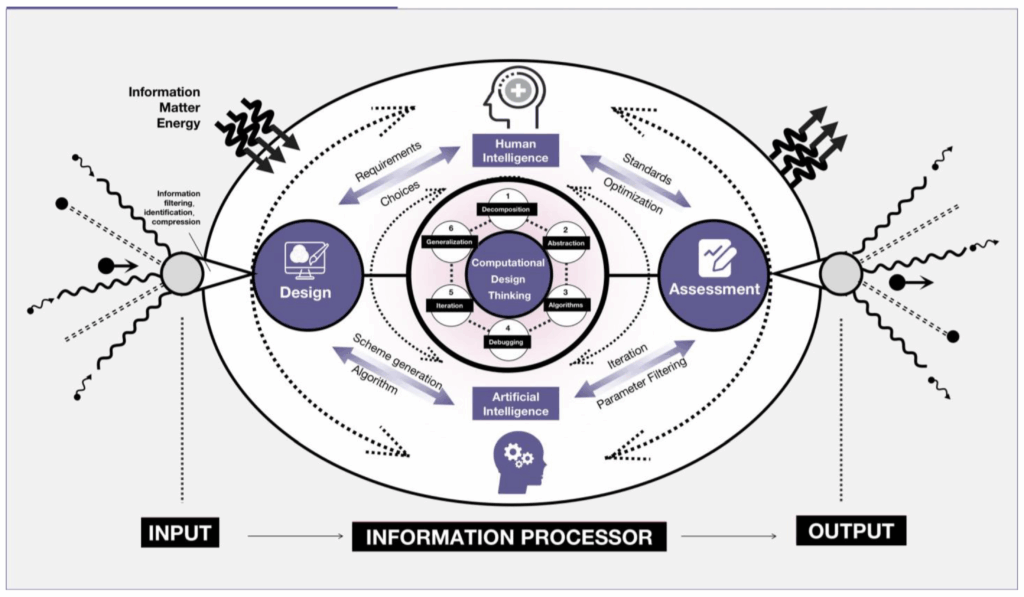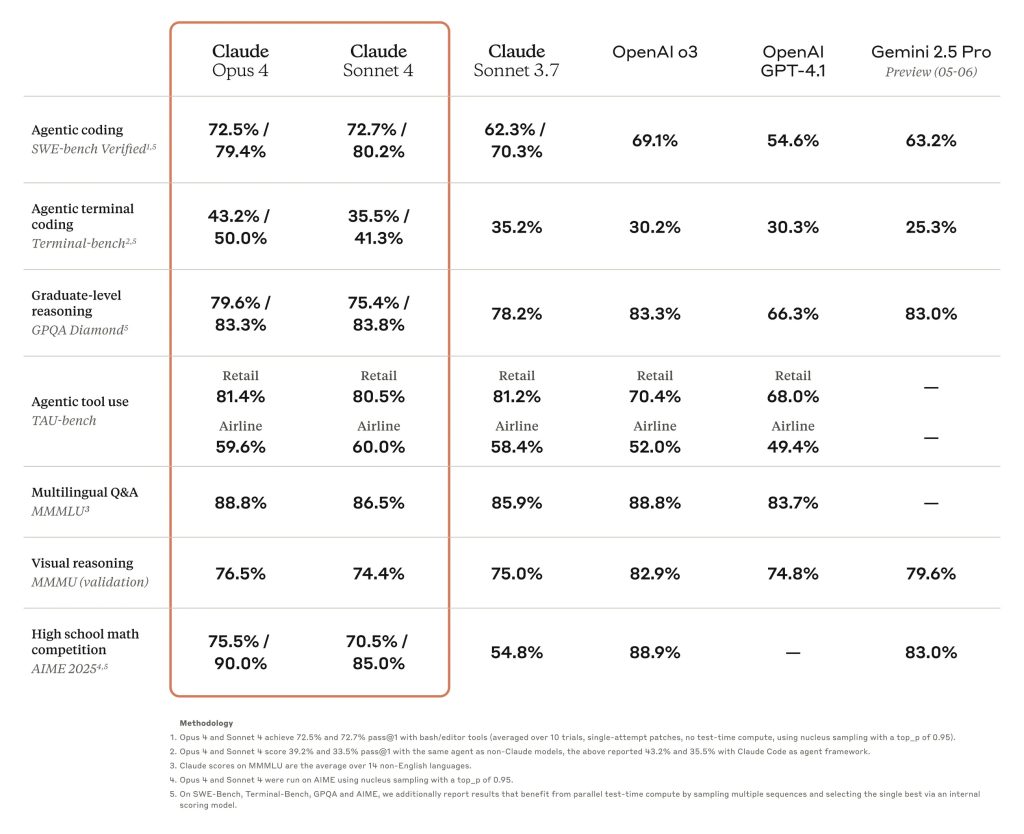Anthropic has launched its next-generation Claude 4 model family, introducing two standout models—Claude Opus 4 and Claude Sonnet 4—that mark a significant step forward in AI coding capabilities and intelligent agent development.
The company describes these new models as tools to “advance our customers’ AI strategies across the board,” with Opus 4 positioned as a powerful model for pushing boundaries in software development, research, writing, and scientific discovery, and Sonnet 4 tailored for broader, high-performance everyday use.
Claude Opus 4: Designed for Endurance and Precision
Billed as Anthropic’s most capable model to date, Claude Opus 4 is setting new benchmarks in AI programming. The model has topped key industry tests, scoring 72.5% on SWE-bench and 43.2% on Terminal-bench—clear indicators of its performance in real-world software engineering tasks.
But Opus 4’s strength goes beyond benchmarks. It’s engineered for sustained, multi-hour tasks, capable of maintaining context and focus over thousands of steps. This level of endurance makes it a game-changer for building AI agents that can operate autonomously in long-running workflows.
Claude Sonnet 4: Smarter Tools for Everyday Devs

If Opus is the heavyweight, Sonnet 4 is the agile all-rounder. It replaces Sonnet 3.7 and is already gaining traction for its versatility across coding, reasoning, and agent-based tasks.
Early adopters are enthusiastic. GitHub reports that Sonnet 4 excels in agentic scenarios and plans to use it as the core model behind a new Copilot coding agent. Other industry voices echo this sentiment:
- iGent says Sonnet 4 delivers near-zero code navigation errors and significantly improves autonomous app development.
- Sourcegraph praises its ability to “stay on track longer, understand problems more deeply, and produce more elegant code.”
- Augment Code reports more accurate code edits and better performance on complex instructions, naming Sonnet 4 their preferred model.
Hybrid Thinking and Developer-Centric Tools

Both Claude 4 models support a dual-mode operation: one for instant responses, and another for deeper, reasoned analysis—ideal for tasks requiring more thoughtful AI output. While this extended reasoning mode is reserved for paid tiers on Opus, it’s also included with Sonnet 4 for free-tier users, significantly expanding access to high-quality AI.
Anthropic is also introducing several new features for developers via its API:
- Code Execution: Enables models to run code for interactive problem-solving.
- MCP Connector: Facilitates smooth context exchange between AI agents and their environments.
- Files API: Allows direct file interaction, key for real-world software workflows.
- Prompt Caching: Supports prompt reuse for up to an hour, improving speed and efficiency for repeated queries.
Performance, Price, and Availability

Anthropic claims that the Claude 4 family leads on SWE-bench Verified, a benchmark for real software engineering performance. In addition to coding, the models also demonstrate strong performance across reasoning, multimodal input, and autonomous task execution.
Despite major performance gains, pricing remains steady:
- Claude Opus 4: $15 per million input tokens, $75 per million output tokens
- Claude Sonnet 4: $3 per million input tokens, $15 per million output tokens
Both models are now available via the Anthropic API, Amazon Bedrock, and Google Cloud’s Vertex AI, making them widely accessible for enterprise and individual developers alike.
The Bottom Line
With Claude 4, Anthropic is making a decisive push into the next frontier of AI: building more autonomous, persistent, and context-aware agents that can contribute meaningfully to software development and beyond. Whether you’re a startup exploring coding agents or a research team running long-tail tasks, Claude 4 offers tools with real depth—and staying power.




